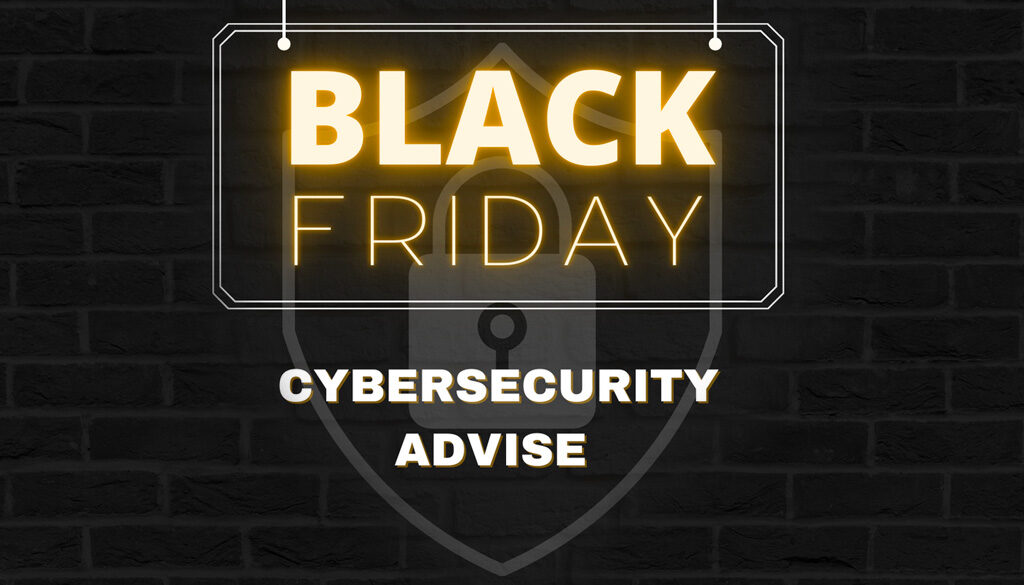Protect Your Wallet From Black Friday Scams And Cyberattacks
Navigating Black Friday Safely
As the much-anticipated Black Friday approaches on November 24, promising a bounty of deals on coveted items like headphones and air fryers, it’s crucial to be on guard. While customers eagerly contribute to the retail frenzy, cybercriminals are equally eager to snatch a share of the potential financial influx.
Scammers are active throughout the year, but during the holiday season, especially the high-spending period, they intensify their efforts to exploit the generosity of the season. Here’s a comprehensive guide to understanding Black Friday scams and ensuring you don’t fall victim to cyber threats this holiday season.
Identifying Black Friday Scams: Stay Vigilant
Holiday shopping scams manifest in various forms. Major retailers like Amazon, Best Buy, and Walmart unveil enticing deals, but fraudsters respond with elaborate schemes. These may involve fraudulent websites, deceptive emails or texts, and even fake charities. Here’s what you need to be aware of:
- Fake Websites and Phishing: Scammers impersonate reputable retailers, sending official-looking emails or texts with links to counterfeit websites. These sites mimic legitimate platforms, enticing you to enter personal information or credit card details.
- Credit Card Skimming Goes Digital: Instead of physical skimming devices, hackers now insert malicious code directly on websites, capturing online payment information. Protect yourself by avoiding saving credit card details on retail sites, using third-party payment methods, and enabling purchase alerts.
- Beware of ‘Secret Sister’ Gift Exchange: Originating on social media, this pyramid scheme disguised as a gift exchange exploits the “Secret Santa” concept. Avoid participating, as it often involves sending money to strangers and risks revealing personal details.
- Faux Charity Scams: During the season of giving, scammers impersonate legitimate charities, creating convincing websites and using local phone numbers. Verify charities through watchdog organizations, track donations, and avoid giving away sensitive information.
Recognizing Red Flags: Protecting Yourself
Black Friday Scams come with telltale signs that can help you steer clear of potential threats. Stay alert and watch out for:
- Phishing Emails: Check for misspelled email addresses, grammar mistakes, generic terms instead of personalized greetings, urgent demands for immediate action, promises of refunds or freebies, and low-quality or incorrect company logos.
- Suspicious Websites: If a website doesn’t seem right or feels off, exercise caution. Verify the authenticity of the site before making any transactions.
- Charity Calls: Be skeptical of unsolicited calls from charities. Research them using watchdogs and avoid sharing personal information.
Beware of Too-Good-To-Be-True Deals: Unmasking The Illusion
In the world of online shopping, the allure of an unbelievably good deal can be irresistible. However, the old adage holds true: if it seems too good to be true, it probably is. Scammers often use the tactic of offering deals that appear extraordinary to lure unsuspecting shoppers into their traps.
Red Flags of Deceptive Deals:
- Unrealistic Discounts: Authentic retailers typically have profit margins that prevent them from offering products at absurdly low prices. If a deal appears to defy logic with its extreme discount, exercise caution.
- Unknown or Suspicious Websites: Scammers often create fake websites with polished exteriors to give the illusion of legitimacy. Verify the website’s authenticity by checking for customer reviews, a secure connection (https://), and contact information.
- Unsolicited Emails or Messages: Be wary of deals that come to you unsolicited via email, text, or social media. Reputable businesses don’t usually reach out to customers with unbelievable offers out of the blue.
- Limited-Time Pressure: Scammers frequently use urgency as a tactic. If a deal insists on immediate action, claiming it’s a limited-time offer or available to only a few lucky individuals, think twice before proceeding.
Protecting Yourself:
- Research Before Purchasing: Take the time to research the seller or website. Look for customer reviews and testimonials from reliable sources.
- Verify Discounts: Cross-check the offered discount with prices on other reputable websites. If the difference is too drastic, be skeptical.
- Use Secure Payment Methods: When making online purchases, opt for secure payment methods like credit cards. They often provide additional layers of protection against fraud.
- Trust Your Instincts: If something feels off or if the deal seems too extraordinary, trust your instincts. It’s better to miss out on a deal than to fall victim to a scam.
As the saying goes, a cautious shopper is a smart shopper. Stay vigilant, stay informed, and enjoy your online shopping experiences while safeguarding yourself against deceptive deals. If it appears too good to be true, take a step back and scrutinize the details before proceeding.
Protecting Your Finances: Practical Tips For Avoiding Black Friday Scams
To safeguard your finances and personal information, follow these practical tips:
- Research Charities: Use watchdog organizations and online tools to verify the legitimacy of charities before making donations.
- Track Donations: Keep records of your donations to ensure transparency and guard against recurring, unauthorized charges.
- Limit Personal Information: Avoid providing unnecessary personal information, especially Social Security numbers or bank account details.
As the holiday shopping season kicks off, let’s navigate Black Friday with awareness, ensuring a joyful and secure experience for all. Remember, staying informed and vigilant is the key to a scam-free holiday season. Trust Dependable Solutions to safeguard your holiday season.



